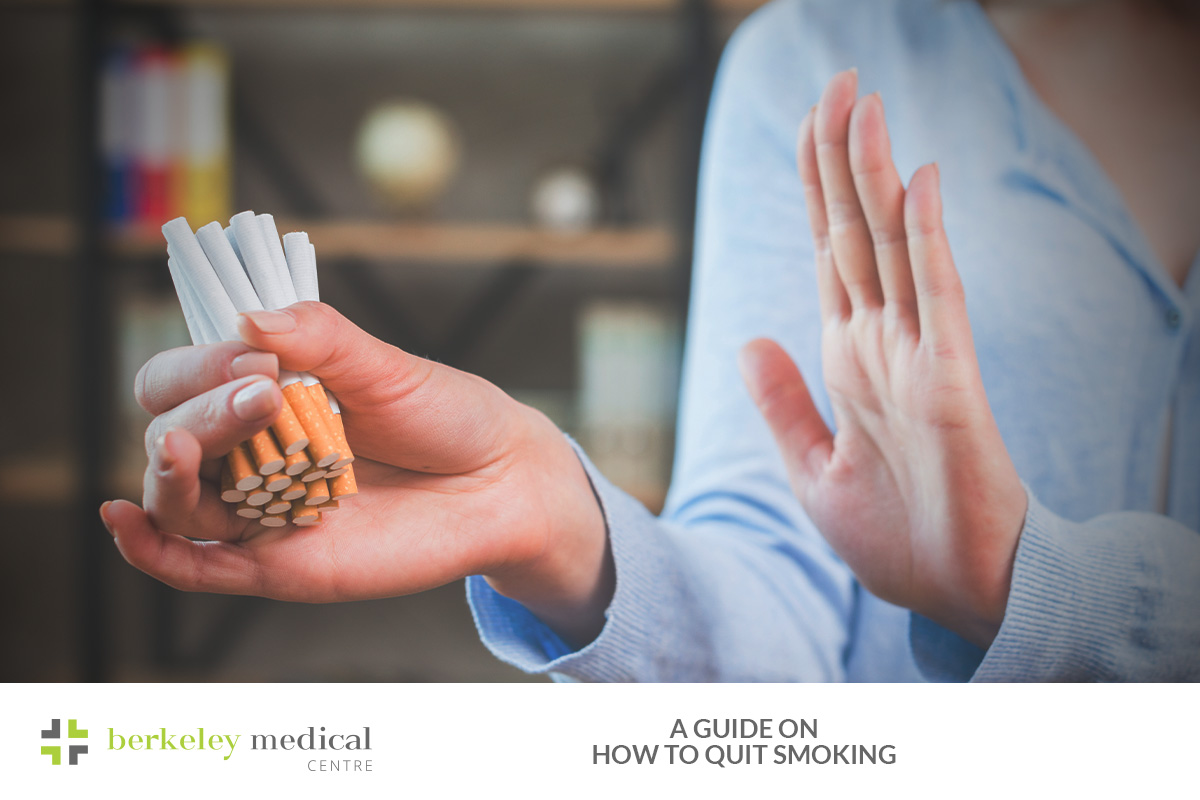Quitting smoking is one of the best decisions you can make for your health. It reduces the risk of serious diseases, improves your quality of life and saves you thousands of dollars each year. However, quitting is not easy nicotine is highly addictive and smoking becomes a deeply ingrained habit. The good news is that with the right strategies and support, you can successfully quit smoking and stay smoke-free for life.
Why You Should Quit Smoking
Smoking is the leading cause of preventable diseases. It increases your risk of lung cancer, heart disease, stroke and respiratory illnesses like chronic obstructive pulmonary disease (COPD). Second-hand smoke also harms those around you, including family members, children and pets.
The Health Benefits of Quitting Smoking
Your body starts healing the moment you stop smoking:
- After 20 minutes – Your heart rate and blood pressure begin to drop.
- After 12 hours – Carbon monoxide levels in your blood normalise.
- After 2-3 weeks – Your lung function and circulation improve.
- After 1 year – Your risk of heart disease is cut in half.
- After 10-15 years – Your risk of heart disease and lung cancer matches that of a non-smoker.
Quitting smoking will improve your overall health, increase your energy levels and help you live longer.
Proven Strategies to Quit Smoking Successfully
Find Your Reason to Quit
Having a strong personal reason to quit will keep you motivated. Common reasons include:
- Improving your health and reducing the risk of disease.
- Protecting your loved ones from second-hand smoke.
- Saving money smoking costs thousands of dollars per year.
- Looking and feeling better smoking causes premature aging, yellow teeth and bad breath.
Write down your reason and keep it somewhere visible as a reminder whenever you feel tempted to smoke.
Set a Quit Date and Make a Plan
Quitting smoking without preparation can be difficult. Set a quit date within the next two weeks and plan for challenges, including withdrawal symptoms and cravings.
Steps to prepare:
- Remove all cigarettes, lighters and ashtrays from your home and car.
- Inform your friends and family so they can support you.
- Identify your smoking triggers and plan how to manage them.
- Download a quit-smoking app or join a support program.
Use Nicotine Replacement Therapy (NRT)
Nicotine withdrawal can cause cravings, irritability and anxiety. Nicotine replacement therapy (NRT) can help by gradually reducing your dependence on nicotine.
Options include:
- Nicotine patches for a steady release of nicotine.
- Nicotine gum or lozenges for immediate craving relief.
- Nicotine inhalers or nasal sprays to mimic the action of smoking.
A doctor or pharmacist can help you choose the best NRT combination for your needs.
Identify and Avoid Triggers
Smoking is often linked to specific activities or emotions. Recognising your triggers can help you avoid situations that make you want to smoke.
- If you smoke with coffee, switch to tea or drink water instead.
- If you smoke after meals, go for a walk or brush your teeth instead.
- If alcohol makes you crave cigarettes, reduce or avoid drinking initially.
- If stress tempts you to smoke, try deep breathing or relaxation techniques.
Manage Cravings with Healthy Alternatives
Cravings typically last only 5-10 minutes. Instead of smoking, try:
- Chewing sugar-free gum or eating a healthy snack like nuts or carrots.
- Drinking a glass of water to reduce cravings.
- Taking a brisk walk or stretching to distract yourself.
- Practicing deep breathing or meditation to reduce stress.
Stay Active and Exercise Regularly
Exercise can reduce withdrawal symptoms and improve your mood. Even light activities help, such as:
- Walking or jogging
- Yoga or stretching
- Strength training
- Swimming or cycling
Exercise also helps prevent weight gain, which is a common concern for those quitting smoking.
Find Healthy Ways to Cope with Stress
Many smokers use cigarettes to manage stress. Replacing smoking with healthier stress-relief techniques will make quitting easier.
- Try meditation or mindfulness exercises.
- Listen to calming music or take a warm bath.
- Write in a journal to express your emotions.
- Practice deep breathing techniques when feeling anxious.
Build a Support Network
Quitting smoking is easier when you have support.
- Tell friends and family about your quit plan so they can encourage you.
- Join a quit-smoking support group (online or in-person).
- Speak to a GP or psychologist for guidance.
- Call Quit line (13 78 48) for free telephone support.
Plan for Setbacks and Stay Committed
Many people try to quit multiple times before succeeding. If you relapse, do not give up learn from the experience and try again.
- Identify what triggered the relapse and adjust your strategy.
- Remind yourself why you quit and refocus.
- Avoid the “just one” cigarette mindset one cigarette can lead back to full-time smoking.
Each time you resist a craving, you strengthen your ability to quit for good.
How Berkley Medical Centre Can Help You Quit Smoking
At Berkley Medical Centre, we provide medical support to help you quit smoking successfully. Our services include:
- Personalised quit- smoking plans tailored to your needs.
- Mental health support to help you manage stress and cravings.
- General health checks to track improvements after quitting.
Quitting smoking is one of the most important steps you can take for your health. With the right mindset, tools and support, you can stop smoking for good and enjoy a longer, healthier life.
Start Your Quit Journey Today
If you are ready to quit smoking, take the first step today. With the right strategies and support, you can break free from nicotine addiction and enjoy better health, increased energy and a longer life.







